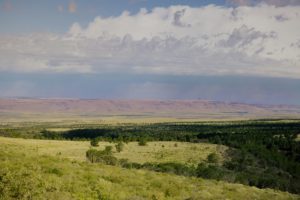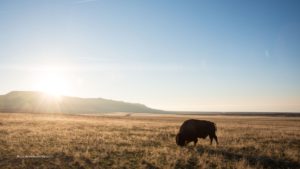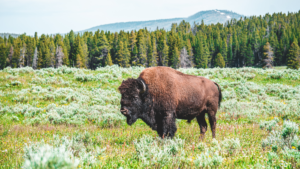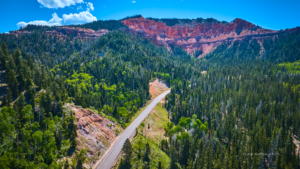For immediate release: June 20, 2024
Media contacts:
Erik Molvar, Western Watersheds Project, (307) 399-7910, emolvar@westernwatersheds.org
Lizzy Pennock, WildEarth Guardians, (406) 830-8924, lpennock@wildearthguardians.
Dana Johnson, Wilderness Watch, (208) 310-7003, danajohnson@wildernesswatch.
Jeff Juel, Friends of the Clearwater (509) 688-5956 jeffjuel@wildrockies.org
Grizzly Bear Death at Bait Station Precisely What Conservation Groups’ Lawsuit Hoped to Prevent
SAINT MARIES, Ida. – Conservation groups lost their appeal at the Ninth Circuit court this week, cementing a lower court decision that concluded that bear-baiting in Idaho and Wyoming national forests doesn’t harm federally-protected grizzly bears. The court order comes on the heels of this week’s news that a hunter in Idaho’s Panhandle killed a grizzly bear at a bait station after mistaking it for a black bear, exactly the situation that the conservation groups were hoping to prevent with their litigation.
The Idaho Department of Fish and Game (IDFG) finished investigating the June 10, 2024 grizzly bear killing on June 18, and announced that the agency had misidentified the species from video, effectively giving the hunter permission to shoot the bear at the bait site. Part of the uncertainty was blamed on the fact that the grizzly was outside of the species’ known range, despite hunters in the Panhandle region being warned by IDFG itself that grizzly encounters are possible.
“These were exactly the types of tragic grizzly killings we were hoping to avoid through our lawsuit for the federal agencies to consider whether bear baiting should be allowed in grizzly bear habitat,” said Erik Molvar, executive director of Western Watersheds Project. “The courts, unfortunately, didn’t see the risks and declined to compel new federal consultation. It’s deeply unfortunate.”
“Another protected grizzly bear in Idaho has been shot by a hunter at a black bear bait station–it’s so obvious that bear baiting should be banned in national forests,” said Lizzy Pennock, carnivore coexistence attorney at WildEarth Guardians. “IDFG wants to see grizzly bears delisted and claims that they can manage the species. How can they manage grizzly bears if they can’t even identify one?”
“The killing of a threatened grizzly bear at a bait station near St. Maries is tragic on so many levels,” said Dana Johnson, attorney and policy director for Wilderness Watch. “The grizzlies who set out in search of new territory are beacons of hope—they are the bears who will reestablish home ranges in places like the Selway-Bitterroot Wilderness and help reconnect and recover otherwise isolated and struggling grizzly bear communities. But we keep baiting and killing them. Incidents like this are tragic because they are so utterly preventable. It has to stop, and we’re not going away until it does.”
“Now we are faced with this untenable situation–where baiting for black bears is allowed in grizzly habitat by the state of Idaho and sanctioned by the U.S. Fish and Wildlife Service (USFWS) and the federal courts, with there being no way to hold anyone accountable for this killing of an endangered grizzly as a result,” said Jeff Juel of Friends of the Clearwater. “The State of Idaho says the grizzly bear should be removed from the federal Endangered Species list because they can manage the species, but this incident proves they’re entirely unqualified.”
“Grizzlies deserve safe passage into new habitats, and dispersal is a key aspect of their life cycle,” said Molvar. “A fed bear is a dead bear, and placing bait stations in grizzly habitat to attract black bears opens a Pandora’s box of bad outcomes.”
# # #






